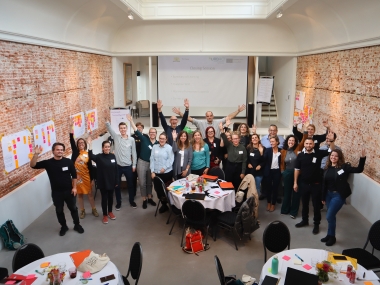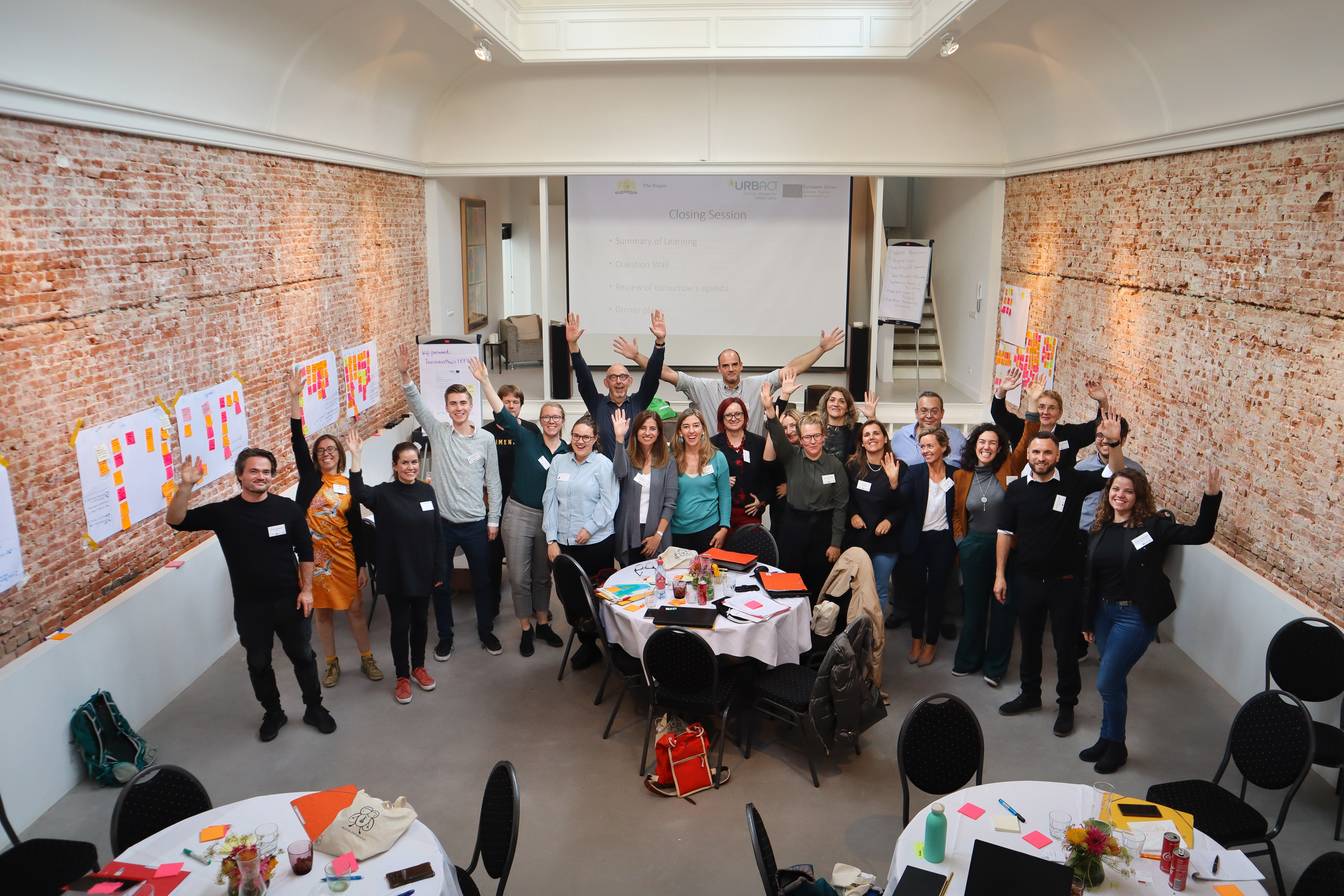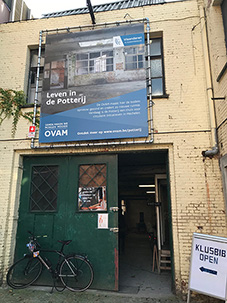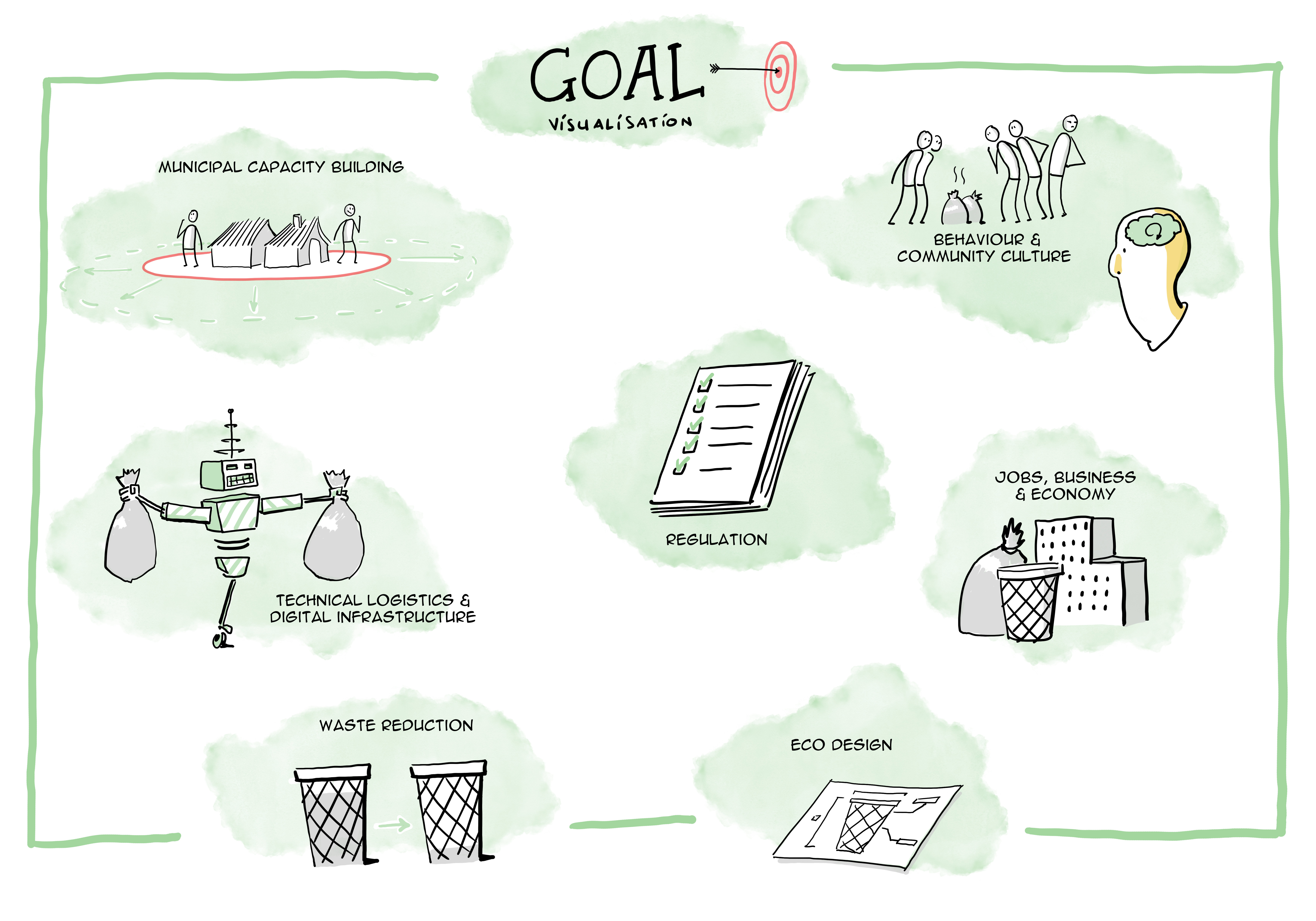Introducing the Resourceful Cities Action Planning Network: Driving citizen centred, resource-based transition in cities across Europe
Edited on
29 March 2021A citizen centred circular economy project with a difference, the Resourceful Cities concept was conceived by The Hague and Oslo, arising from their membership in the Urban Agenda Partnership on Circular Economy. The project was developed to implement one of the twelve actions addressed by the Urban Agenda partnership - namely the action to "Promote Urban Resource Centres for waste prevention, re-use and recycling".

Led by The Hague, the Resourceful Cities consortium consists of ten partners, representing a wide geographical spread and diversity of contexts from across Europe. The partner cities are Oslo (NO), Zagreb (HR), Vila Nova de Famalicão (PT), Cáceres (ES), Opole (PL), Patras (EL), Ciudad Real (ES), Bucharest 3rd District (RO) and Mechelen (BE).
Partners came together for the first time at their kick off meeting in The Hague on the 3rd & 4th of October. Together, they will undergo an extensive programme of facilitated transnational exchange and learning as well as participative co-creation at local level, between now and April 2022, in order to develop tailor made comprehensive integrated action plans (IAPs) for each partner city. The IAPs will focus on making the transition to the circular economy within the framework of the Urban Resource Centre.

PHOTO 1: Partners gathered together for the first time at the network kick off meeting in The Hague on 3rd & 4th October.
So what exactly is an Urban Resource Centre?
An Urban Resource Centre can be defined as a physical space used to promote repairing, reusing and recycling (a circular economy) at a local level. These centres can be multi-functional places, where the waste hierarchy is correctly implemented, and the social, environmental and economic functions of the circular economy are emphasized.
Examples  can vary from community spaces where citizens can come to avail of second-hand clothing, second hand products and repair services(Lindeberg mini-recycling station, Oslo) to spaces with a focus on training (Made in Moerwijk , The Hague) or new circular business development, incubation & innovation (Vollebekk Factories, Oslo). Whatever the precise local focus, Urban Resource Centres bring together a wide community of stakeholders, promoting circular consumption, waste prevention, re-use and circular resource management.
can vary from community spaces where citizens can come to avail of second-hand clothing, second hand products and repair services(Lindeberg mini-recycling station, Oslo) to spaces with a focus on training (Made in Moerwijk , The Hague) or new circular business development, incubation & innovation (Vollebekk Factories, Oslo). Whatever the precise local focus, Urban Resource Centres bring together a wide community of stakeholders, promoting circular consumption, waste prevention, re-use and circular resource management.
By using the Urban Resource Centre concept as a common framework, partner cities will work together and learn from each other to develop tailor made solutions to common challenges relating to the acceleration of the circular economy and resource efficiency at local neighbourhood, city and transnational level.
PHOTO 2: The entrance to the De Potterij, an old laundry building in Mechelen which is about to be transformed into a hub for creative circular economy start-ups
Why is this important?
While the growth in availability and affordability of a wide variety of products has contributed to a rise in living standards and quality of life across Europe, it has simultaneously resulted in excessive resource extraction and growing pressure on natural resources and climate. The direct link between these intense and unsustainable pressures and our insatiable appetite for new products is vastly under appreciated. This lack of awareness of the true cost of our consumer habits will be one of the key challenges addressed by the network.
Existing local approaches to waste prevention, re-use, and recycling initiatives are highly varied across European countries. Some cities are actively working to promote waste prevention, re-use, and repair. In many other cities however, waste prevention and re-use have traditionally been considered, to be beyond the obligations of the local waste management actors, and demand-led waste collection services are still the norm. Many local waste authorities therefore, lack the required knowledge and expertise in the field to move towards a more proactive waste management system. Partners will work together through network activities to fill these knowledge and capacity gaps.
Traditionally, cities work with large recycling stations located in the outskirts of the urban areas. Often they are only accessible by car and many do not offer alternatives to directing the waste to recycling, incineration and landfill, even when resource quality is so good that this is a very viable option. This trend is turning. Cities are growing, land is becoming scarce and citizens are demanding services which are easily accessible. The question of how cities can develop services which fit with the priority of the waste hierarchy, promote the circular economy and also invite in citizens, new businesses and start-ups to co-create new ways of closing the resource loops at local level will be explored through a facilitated discovery process during the network’s activities.
 PHOTO 4: Artist’s impression of network goals as defined in the Kick off meeting. Credit: Hugo Seriese, ‘Buro Brand’.
PHOTO 4: Artist’s impression of network goals as defined in the Kick off meeting. Credit: Hugo Seriese, ‘Buro Brand’.
While the network has only just kicked off, some key opportunities have already become clear. Firstly, partner cities are full of diverse resources which remain untapped. These may be lost if cities do not act quickly, and with them the chance to drive systemic change within these cities towards a new resourceful economic model. These resources are both tangible and intangible and highly valuable in their unique territorial origin. They can include unused physical spaces, products, untapped human skills, enthusiasm and knowledge. Moreover, cities are full of neighbourhoods with diverse unmet social needs. These can be powerful transition drivers. Cities and their constituent neighbourhoods have their own unique history, language and story to tell. The Urban Resource Centre can provide a valuable framework for harnessing these resources through the provision of tailor-made local spaces for citizen co-creation, participation, integration and values-based development.
Who will be involved?
The transition to a new sustainable & circular socio-economic system will require collaborative efforts at many levels. Cities will need to develop services which can both facilitate and stimulate sustainable lifestyles. Many exciting local initiatives supporting sustainable consumption and production already exist across Europe. These however, need to be scaled-up and new green enterprise development supported. Cities, with their critical mass of population, must work to promote greater eco-design and eco-innovation. Strong market demand for these new production processes and consumer systems initiated at the city scale are essential if we are to facilitate greater resource efficiency and mainstream sustainable consumer behaviour. This will require cooperation between partners across public, private, academic and citizen-based organisations.
Resourceful cities partners recognise the widespread societal value which can be gained from tapping into their local resources and fast tracking this transition. From increasing equality and resilience in socio-economic systems to driving job production and competitiveness, these cities are excited about the variety of benefits which can be accrued from their actions within this network. While the focus is on waste reduction reuse and recycling, obvious benefits include a consequent reduction on carbon emissions, waste and other forms of pollution. This network however, knows it can deliver other far reaching social, economic and environmental benefits for its citizens, that go beyond its original waste reduction, reuse & recycling intention.
Interested? Why not join us on this exciting transition journey! Resourceful cities thrive on collaboration and idea sharing! Follow us on twitter @ResourcefulCit1 to keep up to date on project activities.
Twitter Accounts: @eclane08 @MadeInMoerwijk @CityOfTheHague @Oslokommune @StadMechelen @MiastoOpole @CMVNFamalicao @Ayto_Caceres @City Patras @City_Of_Zagreb @cityofbucharest @AYTO_CIUDADREAL @EUUrbanAgenda @jaynavarroovie1 @jhpost
Submitted by Anonymous on




